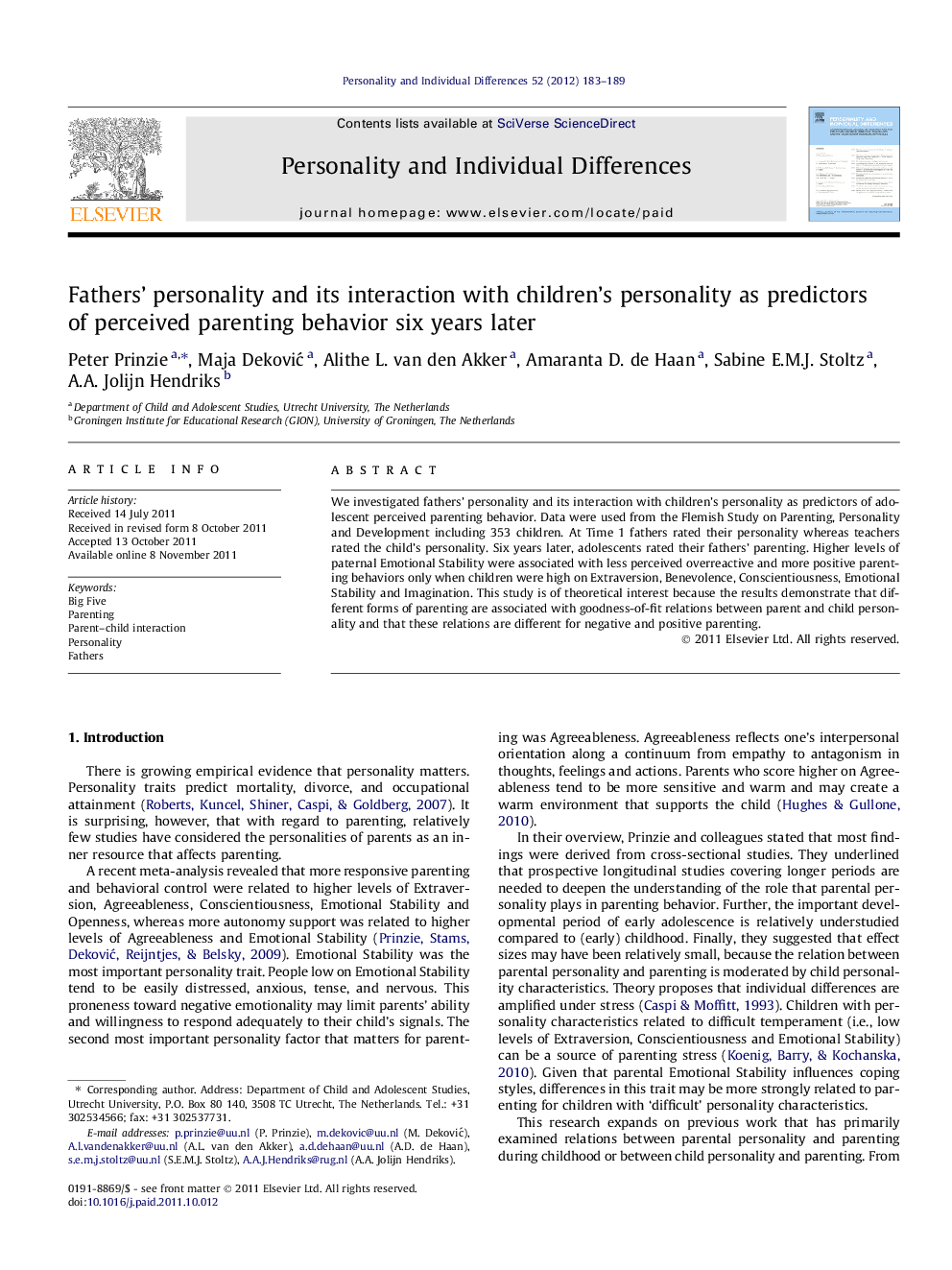| Article ID | Journal | Published Year | Pages | File Type |
|---|---|---|---|---|
| 891213 | Personality and Individual Differences | 2012 | 7 Pages |
We investigated fathers’ personality and its interaction with children’s personality as predictors of adolescent perceived parenting behavior. Data were used from the Flemish Study on Parenting, Personality and Development including 353 children. At Time 1 fathers rated their personality whereas teachers rated the child’s personality. Six years later, adolescents rated their fathers’ parenting. Higher levels of paternal Emotional Stability were associated with less perceived overreactive and more positive parenting behaviors only when children were high on Extraversion, Benevolence, Conscientiousness, Emotional Stability and Imagination. This study is of theoretical interest because the results demonstrate that different forms of parenting are associated with goodness-of-fit relations between parent and child personality and that these relations are different for negative and positive parenting.
► Father and child personality are related to perceived parenting six years later. ► Paternal Emotional Stability is the most important personality factor. ► Interactions between parent and child personality support the goodness-of-fit models.
